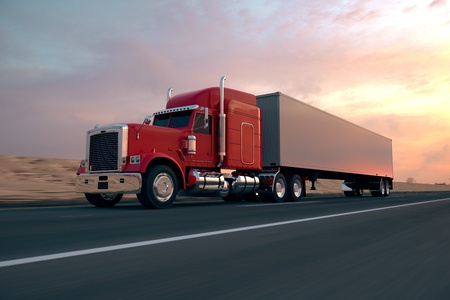Overview
Your employee drivers are the face of the company. But what about the times when your employee drivers are  “off the clock” and no longer bound by their regular employment rules and regulations? For example, would your company be liable if your employee driver, while en route to his or her destination, stops at a bar and gets into a fight or has an accident while intoxicated? The hope would be that courts find such activities “outside the scope of his or her employment” as he or she was obviously not hired to fight or drink on the clock and thus find that the company is not liable for any injury or damage suffered by a third party. However, depending on the circumstances, certain acts that your employee drivers engage in during their downtime can trigger liability from third parties for the company.
“off the clock” and no longer bound by their regular employment rules and regulations? For example, would your company be liable if your employee driver, while en route to his or her destination, stops at a bar and gets into a fight or has an accident while intoxicated? The hope would be that courts find such activities “outside the scope of his or her employment” as he or she was obviously not hired to fight or drink on the clock and thus find that the company is not liable for any injury or damage suffered by a third party. However, depending on the circumstances, certain acts that your employee drivers engage in during their downtime can trigger liability from third parties for the company.
Remember that personal conveyance rules under the Federal Motor Carrier Safety Administration are also in play when your employee is off duty and using a commercial motor vehicle for personal use. You can read more about personal conveyance and the recent update provided by the FMCSA in one of our recent alerts in June 2018.
Actions outside the scope of employment are basically acts that don’t fall anywhere within the job description, or were completely unanticipated from the employer’s standpoint. Drinking, using drugs, getting in fights, and committing crimes are all examples of actions that can occur outside the scope of employment, but may be utilized by an attorney to connect the driver’s action to their employer with the hopes of getting to the deeper pockets of the company’s insurance policy.
Most states have laws that protect a company from acts outside the scope of employment, and don’t allow companies to bear the legal burden of responsibility for a driver’s acts that weren’t part of the job description. Additionally, if that driver committed a criminal act, you need to be able to show there was nothing in the driver’s history to indicate a foreseeable future problem to avoid a negligent hiring or retention claim. Keep in mind that the FMCSA Safety Measurement System will have data that will tell you what your CDL driver has been up to while driving professionally that might influence a negligent hiring or retention claim.
In general, for the company to be potentially legally responsible for an employee driver’s actions, they have to be:
- Doing that type of work they were hired to do;
- The action occurs within the time frame authorized to do such work; and,
- The action was at least in part driven by a purpose to serve the employer.
To be at fault for hiring (or continuing to employ) someone with a troubled history, the courts look to the following:
- The employer knew the driver had a specific problematic history that made them unsuited to the task they were being hired to complete;
- The employer knew, or should have known, of the history when the person was hired; and,
- The specific problem with the person’s history led to the injury at issue.
There are no guarantees when it comes to avoiding liability for driver actions, but we counsel clients on ways to minimize and reduce the risks by conducting thorough background checks, documenting your company’s training and safety policy, understanding the FMCSA regulations, and simply knowing your employees.
